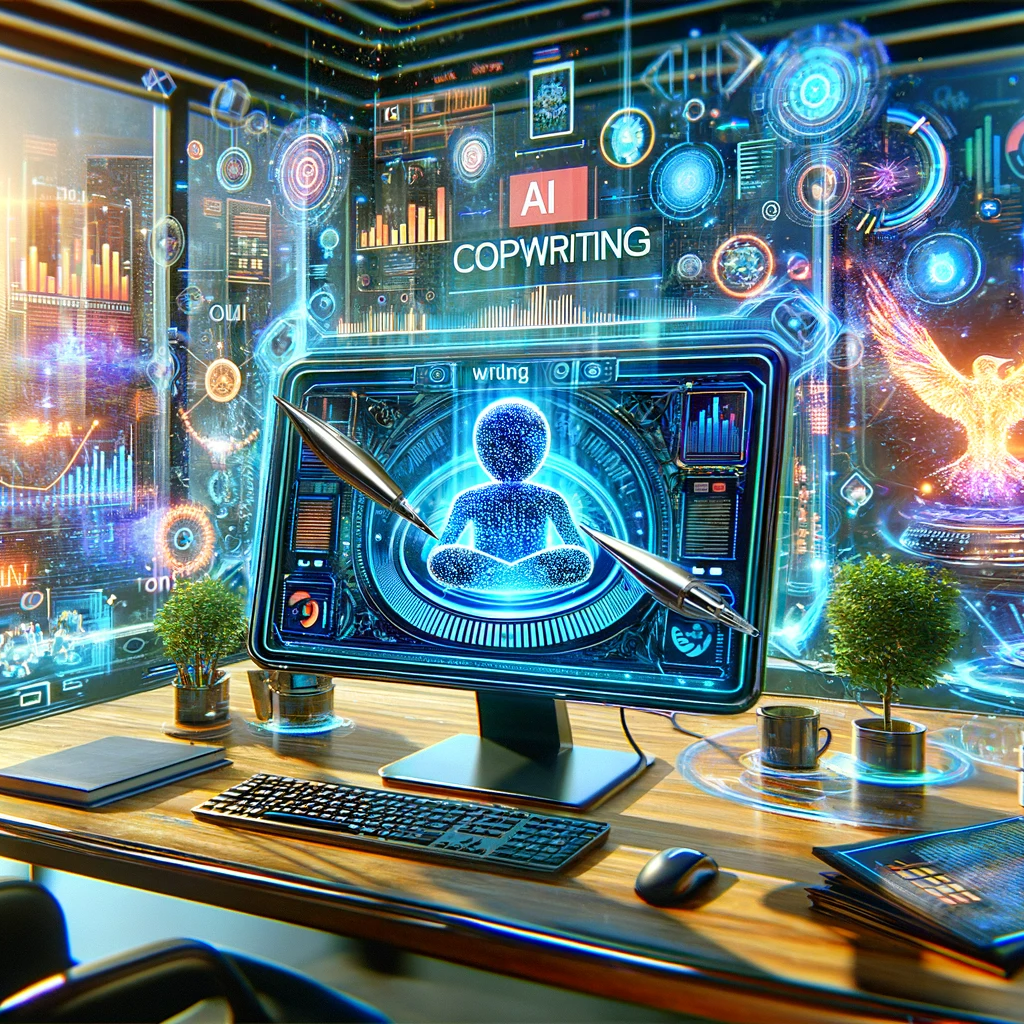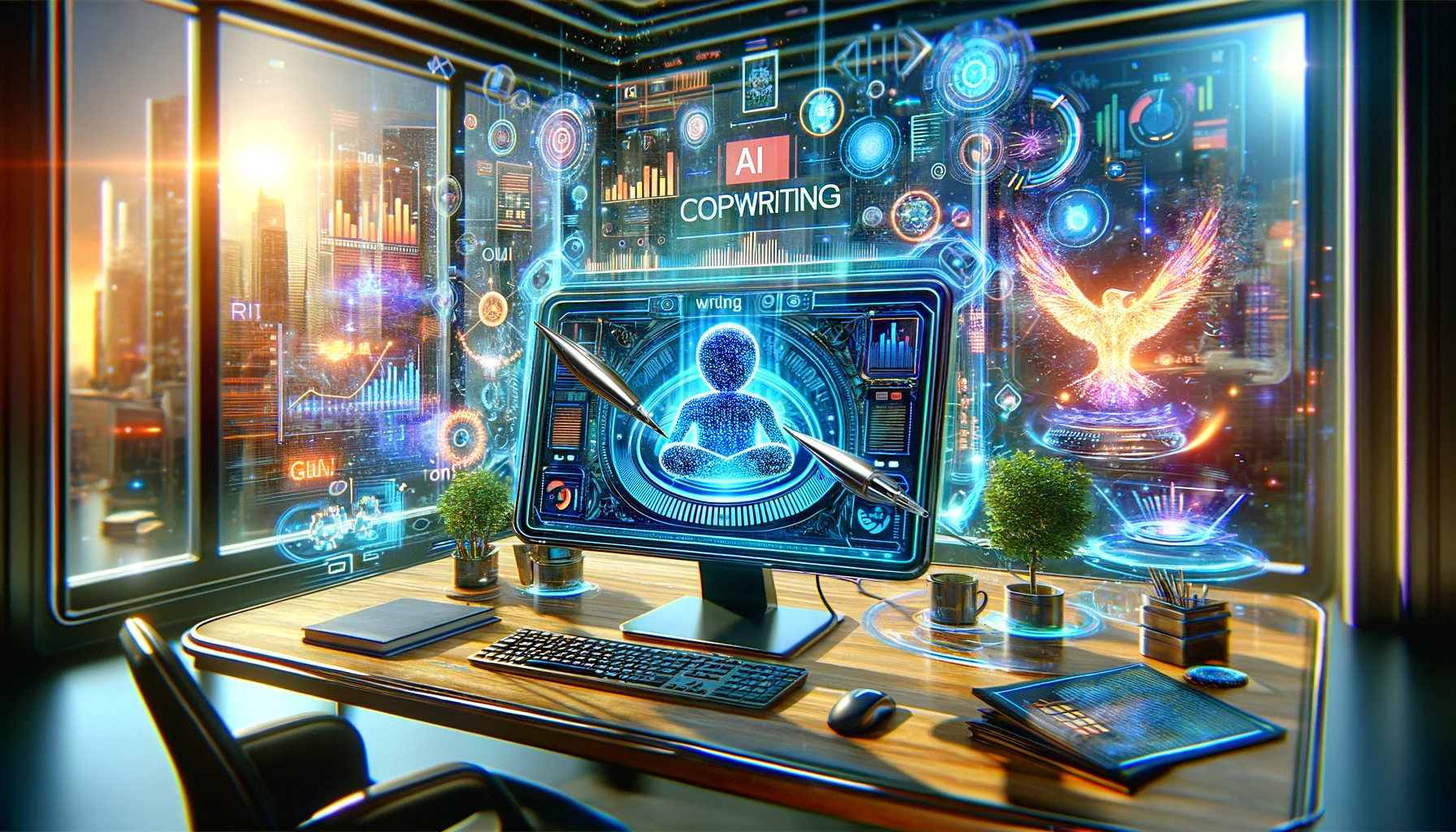Introduction
In the rapidly evolving digital landscape, the role of AI Writing Tools in transforming industries is no longer a futuristic vision but a present reality. Among these transformations, the field of marketing, especially copywriting, has witnessed a significant revolution thanks to AI writing tools. These advanced technologies are not only reshaping how marketers create content but also redefining the efficiency and creativity of marketing strategies.

The Emergence of AI in Copywriting
The integration of Artificial Intelligence in copywriting marks a new era in marketing. Traditionally, copywriting has been a labor-intensive process, relying heavily on human creativity and expertise. However, the advent of AI writing tools has introduced a paradigm shift. These tools, powered by sophisticated algorithms and machine learning, are capable of generating high-quality content in a fraction of the time it takes humans. This technological breakthrough has opened up new possibilities for marketers, allowing them to produce more content at a faster pace without compromising quality.
Enhanced Efficiency and Productivity
One of the most significant impacts of AI writing tools in marketing is the remarkable improvement in efficiency and productivity. AI algorithms can process and analyze large amounts of data at an unprecedented speed, enabling them to generate content quickly. This rapid content creation is particularly beneficial in the fast-paced world of digital marketing, where staying relevant and timely is crucial. By automating the more routine aspects of copywriting, such as drafting standard content or creating variations of existing material, these tools free up human copywriters to focus on more strategic and creative aspects of marketing.
Unleashing Creativity and Innovation
Contrary to the concern that AI might stifle human creativity, it has proven to be a valuable ally in fostering innovation in copywriting. AI tools can analyze current trends, predict future patterns, and suggest content strategies that might not be immediately apparent to human marketers. They can generate numerous creative ideas and angles for a single campaign, providing a rich resource from which marketers can draw inspiration. This synergy of human and artificial intelligence paves the way for more innovative and effective marketing strategies.
Transforming the Marketing Landscape
The impact of AI writing tools extends beyond mere content creation; they are transforming the entire landscape of marketing. With AI, marketers can personalize content at scale, something that was extremely resource-intensive before. These tools can tailor content to different segments of the audience, ensuring that each piece resonates with its intended readers. This level of personalization enhances customer engagement and strengthens brand loyalty.
Data-Driven Insights for Strategic Decision Making
AI tools are not just content generators; they are also powerful analyzers of data. They can sift through vast amounts of customer data, extract valuable insights, and recommend content strategies that align with audience preferences and behaviors. This data-driven approach helps in making more informed and strategic marketing decisions, leading to more successful campaigns.
The Future of AI in Marketing
Looking ahead, the potential of AI in marketing is immense. As these technologies continue to evolve, they will become more sophisticated, offering even more capabilities to marketers. The future may see AI tools not only generating content but also autonomously managing entire marketing campaigns, from concept to execution. This level of automation could redefine marketing roles, with marketers focusing more on strategic oversight and less on operational tasks.
Ethical Considerations and Challenges
While the benefits of AI in copywriting are substantial, they do not come without challenges and ethical considerations. One of the primary concerns is the potential for job displacement. As AI tools become more capable, there is a fear that they might replace human copywriters. However, it’s more likely that AI will augment human skills rather than replace them entirely. The human touch, with its innate understanding of emotions and cultural nuances, remains an essential element of effective copywriting.
Another concern is the ethical use of AI in creating content. There is a fine line between personalization and invasion of privacy, and marketers must navigate this carefully. Ensuring transparency in how AI tools are used and how data is collected and analyzed is crucial in maintaining consumer trust.
Navigating the Human-AI Collaboration
The burgeoning relationship between human creativity and AI’s analytical prowess is forging a new frontier in marketing copywriting. This collaboration is not about machines replacing humans but about enhancing human capabilities. AI can process and analyze data at a scale impossible for humans, but it lacks the nuanced understanding of human emotions and cultural contexts. Therefore, the ideal scenario is a symbiotic relationship where AI provides the data-driven foundation and humans inject creativity, empathy, and strategic thinking. This partnership leads to more dynamic, engaging, and effective marketing content.
The Role of Human Oversight
Despite the advances in AI, human oversight remains crucial. AI algorithms are only as good as the data they are fed and the parameters set by their human programmers. There’s a need for continuous monitoring to ensure that the content generated aligns with brand values and messaging. Human intervention is also necessary to interpret and apply AI-generated insights in a way that resonates with human emotions and cultural nuances. The role of the marketer evolves from content creation to more of a curator and strategist, leveraging AI’s capabilities while adding a human touch.
The Impact on SEO and Online Visibility
AI writing tools also have a profound impact on search engine optimization (SEO) and online visibility. With their ability to analyze search trends and keywords, these tools can optimize content to rank higher on search engine results pages (SERPs). This optimization is not just about keyword stuffing; AI can create content that is both SEO-friendly and genuinely valuable to the reader. As search engines continue to evolve, prioritizing user experience and relevance, the role of AI in creating SEO-optimized content becomes even more critical.
Beyond Keywords: Understanding User Intent
The future of SEO is not just about understanding which keywords are popular but also about understanding user intent. AI tools are evolving to interpret the nuances of search queries, helping marketers create content that answers the underlying questions and needs of their audience. This deeper understanding of user intent can lead to more effective and engaging content, further enhancing a brand’s online presence and customer engagement.
Preparing for a Data-Driven Marketing Future
As we embrace the age of AI in marketing, marketers must develop skills that complement the capabilities of AI. Understanding data analytics, AI algorithms, and machine learning can help marketers make the most of these tools. Additionally, honing skills in strategic thinking, creativity, and emotional intelligence will ensure that the human element in marketing remains strong and effective.
Continuous Learning and Adaptation
The field of AI is rapidly evolving, and staying abreast of the latest developments is crucial for marketers. Continuous learning and adaptation are necessary to leverage the full potential of AI writing tools. Marketers need to be proactive in exploring new tools, experimenting with AI capabilities, and adapting their strategies to integrate these technologies effectively.
Conclusion
In conclusion, AI writing tools are not just a fleeting trend in marketing; they represent a fundamental shift in how marketing content is created and utilized. By enhancing efficiency, fostering creativity, and providing data-driven insights, these tools are revolutionizing the field of copywriting in marketing. As we move forward, marketers need to embrace these changes, adapt to the new landscape, and consider the ethical implications of using such powerful technology. The synergy of human and artificial intelligence holds the key to unlocking unprecedented possibilities in the world of marketing.
Also, like my other post AI’s Role in Website Development: A New Paradigm for Marketers.


Add a Comment